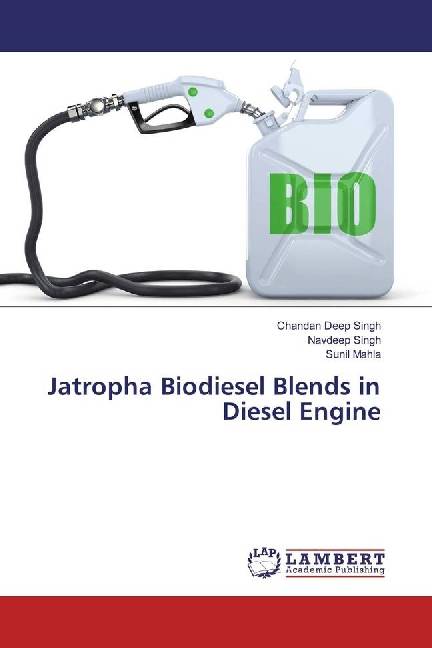
- Afhalen na 1 uur in een winkel met voorraad
- Gratis thuislevering in België vanaf € 30
- Ruim aanbod met 7 miljoen producten
- Afhalen na 1 uur in een winkel met voorraad
- Gratis thuislevering in België vanaf € 30
- Ruim aanbod met 7 miljoen producten
Zoeken
Jatropha Biodiesel Blends in Diesel Engine
Chandan Deep Singh, Navdeep Singh, Sunil Mahla
Paperback | Engels
€ 35,45
+ 70 punten
Omschrijving
Internal combustion engines are the essential parts of transportation and diesel engine are mostly used in vehicles which are the main contributor for harmful emissions like CO, HC, NOX and CO2. And consumption of diesel fuel is also been increased and it also non-renewable in nature. Diesel fuel environmental effect and continuous increase in prices have regenerated interest in bio-fuels. Biodiesel is renewable, biodegradable and also has low harmful emission profiles and so it is environmental friendly. Jatropha curcas oil is selected for biodiesel production. It has high crude oil yield, suitable fatty acid composition, good adaptability to different agro-climatic condition and low gestation period. Biodiesel is prepared by 2-step transesterification process from crude jatropha curcas oil (CJCO). Fuel property is determined of extracted biodiesel according to ASTM- 6751 which are comparable to diesel fuel. Fuel properties are also derived for each jatropha biodiesel blends.
Specificaties
Betrokkenen
- Auteur(s):
- Uitgeverij:
Inhoud
- Aantal bladzijden:
- 64
- Taal:
- Engels
Eigenschappen
- Productcode (EAN):
- 9783330053489
- Uitvoering:
- Paperback
- Afmetingen:
- 150 mm x 220 mm

Alleen bij Standaard Boekhandel
+ 70 punten op je klantenkaart van Standaard Boekhandel
Beoordelingen
We publiceren alleen reviews die voldoen aan de voorwaarden voor reviews. Bekijk onze voorwaarden voor reviews.











